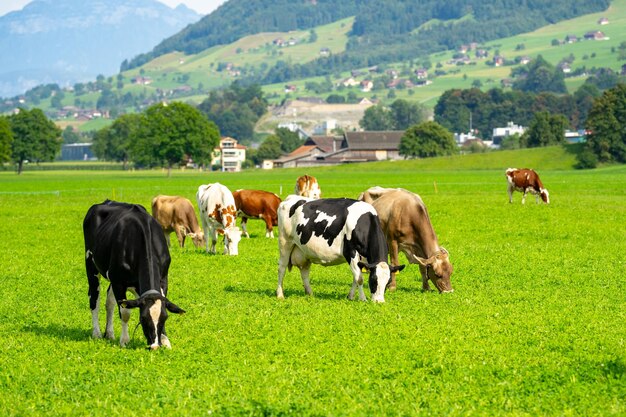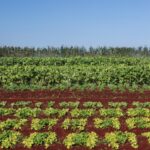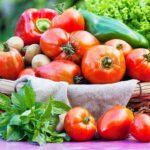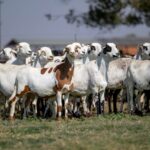Integrated Farming Systems (IFS) represent a holistic approach to agricultural production that combines various farming practices to create a more sustainable and efficient agricultural system. As South African farmers face challenges such as climate change, soil degradation, and fluctuating market demands, adopting IFS can enhance productivity, improve environmental health, and increase profitability. This article provides an overview of Integrated Farming Systems and offers practical advice for implementation.
What Are Integrated Farming Systems?
Integrated Farming Systems involve the integration of different agricultural components, such as crops, livestock, aquaculture, and agroforestry, to create a synergistic farming environment. The goal is to optimize resource use, reduce waste, and enhance overall farm sustainability. IFS can vary in complexity, ranging from simple crop-livestock integration to more advanced systems that include multiple components.
Key Principles of IFS
- Diversification: IFS promotes crop and livestock diversity, which helps to reduce risk and improve resilience against market fluctuations and environmental stresses.
- Resource Efficiency: Integrated systems maximize the use of available resources (land, water, and nutrients) by recycling waste products and minimizing inputs.
- Sustainability: IFS encourages practices that protect soil health, conserve water, and enhance biodiversity, contributing to long-term farm viability.
- Synergy: The various components of an IFS work together to create benefits that are greater than the sum of their parts. For example, livestock can provide manure for crops, while crop residues can feed livestock.
Benefits of Integrated Farming Systems
1. Enhanced Productivity
By combining different farming practices, IFS can lead to higher overall yields. For instance, integrating crops and livestock can improve nutrient cycling and soil health, resulting in better crop performance.
2. Improved Resilience
Diversified farming systems are more resilient to pests, diseases, and climate variability. If one component fails, others can help sustain farm income.
3. Reduced Environmental Impact
IFS can lower the environmental footprint of farming by reducing reliance on chemical inputs, enhancing soil fertility through natural processes, and improving water conservation.
4. Increased Profitability
By maximizing the use of resources and reducing waste, IFS can enhance farm profitability. Farmers can also access multiple markets by producing different products, such as vegetables, fruits, and livestock.
5. Improved Food Security
Integrated systems can contribute to local food security by producing a variety of food products, improving access to nutritious food, and increasing farmers’ resilience to economic fluctuations.
Implementing Integrated Farming Systems in South Africa
1. Assess Your Resources
Begin by evaluating the resources available on your farm, including land, water, labor, and existing crops or livestock. Understanding your resources will help you identify potential integration opportunities.
2. Choose Appropriate Components
Select the components you wish to integrate based on your local conditions and market demands. Some common combinations in South Africa include:
- Crop-Livestock Integration: Rotating crops with livestock can enhance soil fertility and reduce pests. For example, planting legumes can improve soil nitrogen levels, benefiting subsequent crops.
- Aquaculture: Integrating fish farming with crop production can create a closed-loop system. Fish waste provides nutrients for crops, while crops can help filter and clean water for the fish.
- Agroforestry: Combining trees with crops or livestock can enhance biodiversity, improve soil health, and provide additional income sources through timber or fruit production.
3. Adopt Sustainable Practices
Implement sustainable farming practices that support the health of your integrated system, such as:
- Crop Rotation: Rotate different crops to break pest cycles and improve soil fertility.
- Cover Cropping: Use cover crops to prevent soil erosion, improve soil structure, and enhance nutrient availability.
- Composting: Recycle organic waste from crops and livestock to create compost, enriching soil fertility.
4. Monitor and Adjust
Regularly monitor the performance of your integrated system and be prepared to make adjustments based on changing conditions, market demands, and resource availability. Keep records of inputs, outputs, and financial performance to evaluate the success of your system.
5. Seek Knowledge and Support
Engage with agricultural extension services, research institutions, and local farmer groups to gain knowledge and support for implementing IFS. Participating in workshops or field days can provide valuable insights and networking opportunities.
Challenges to Consider
While Integrated Farming Systems offer numerous benefits, there are challenges to consider, including:
- Knowledge Gaps: Farmers may need training to understand how to effectively integrate various components and manage their interactions.
- Initial Investment: Implementing an IFS may require upfront investment in infrastructure or equipment, which can be a barrier for some farmers.
- Market Access: Diversifying production may require access to multiple markets, which can complicate marketing efforts.
Integrated Farming Systems present an innovative approach for South African farmers to enhance productivity, improve sustainability, and increase resilience in the face of modern agricultural challenges. By embracing IFS, farmers can optimize resource use, reduce environmental impact, and contribute to food security while improving their livelihoods. As the agricultural landscape continues to evolve, adopting integrated practices will be crucial for building a sustainable future for farming in South Africa.
Join 'Farmers Mag' WhatsApp Channel
Get the latest Farming news and tips delivered straight to your WhatsApp
CLICK HERE TO JOIN






